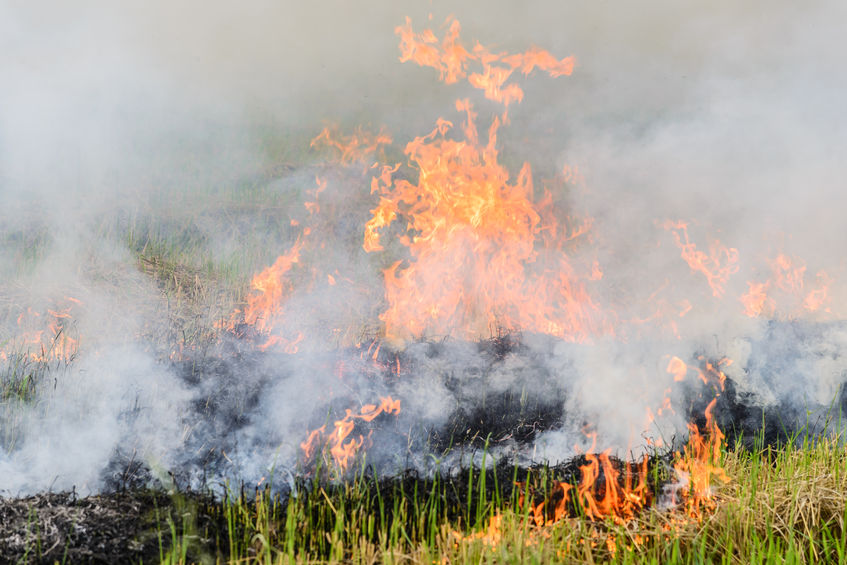
Conditions are dryer than the fabled summer of 1976 and its putting UK farms at high risk of devastating fires.
The UK has basked in prolonged sunshine for weeks as the mercury sits comfortably above 25 degrees Celsius.
But the heatwave has triggered numerous warnings from the agricultural industry that the tinder dry conditions can easily spark fires.
The dry weather makes it more important than ever for farmers during harvest to maintain their buildings and equipment to reduce the risk of a fire breaking out, according to rural insurer NFU Mutual.
Because of the increased risk, having evacuation and fire-fighting plans prepared and shared with family members and staff is a must.
NFU Mutual’s Rural Affairs Specialist, Tim Price has warned that combines in particular are at heightened risk.
“May and June’s good weather means that harvesting is already under way, weeks earlier than usual,” Mr Price said.
“NFU Mutual is urging farmers to reduce the risk of fire by making sure that fire extinguishers on combine harvesters are serviced before harvest starts, and to make sure regular maintenance and cleaning to remove chaff is carried out.”
In terms of maintaining the combine, farmers should tend to any oil or fuel leaks and replace worn bearings.
Mr Price added: “Cleaning chaff off the combine is the obvious place to start, particularly in these dusty, dry conditions. If the combine does have a fire, it’s important to have a good set of fire extinguishers on board.
“If a fire does occur the first priority is to ensure people and livestock are safe. However, with training and the right sort of fire extinguishers in place, it is often possible for farmers to tackle a small fire and prevent it turning into a major blaze without putting themselves at risk.”
Fire Prevention
• Ensure there are sufficient fire extinguishers for the size of buildings and that materials stored are inspected and regularly maintained
• Ensure all staff including seasonal workers and adult family members know the location of fire extinguishers and how to use them
• Reduce the risk of arson by fencing-off straw stacks and farm buildings
• Store hay and straw at least 10m from other buildings
• Put in place an evacuation plan for staff and livestock
• Store petrol, diesel and other fuels in secure areas
• Schedule regular electrical safety checks
• Invite your local fire and rescue service to visit to check water supplies and access routes
If a fire breaks out
• Call the Fire and Rescue Service without delay
• If possible, send someone to the farm entrance to direct the Fire and Rescue Service to the fire to help save time.
• Prepare to evacuate livestock should the fire spread
• Prepare to use your farm machinery to assist the Fire and Rescue Service
